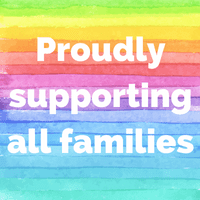Its really common for people to confuse sex, gender and gender identity but they’re actually all different things. Sex is a label—male or female—that you’re assigned by a doctor at birth based on the genitals you’re born with and the chromosomes you have. It goes on your birth certificate.
Some people call the sex we’re assigned at birth “biological sex.” But this term doesn’t fully capture the complex biological, anatomical, and chromosomal variations that can occur. Having only two options—biological male or biological female—might not describe what’s going on inside a person’s body.
Gender is much more complex: It’s a social and legal status, and set of expectations from society, about behaviors, characteristics, and thoughts. Each culture has expectations and standards about the way that people should behave based on their gender. Generally, these constructs are binary—male or female. But instead of being about body parts, it’s more about how you’re expected to act, because of your sex.
So what is Transgender or Trans? In the case of my son, it means that although he was assigned female at birth (AFAB)—he was born with female sex characteristics—he identifies as male. In the LGTBQ community, this is called trans-male. My son uses he/him/his pronouns.
Our son, our family, and we as supportive parents, are most definitely not alone. Studies have shown that 0.6% of adults and 0.7% of kids in the US identify as trans. Many researchers show that they believe this number is much higher, but people of any age choose not to report because of fear of discrimination and transphobia. We chose affirming parenting behaviors—those that strengthen a child’s sense of self-worth. While this was full of challenges (including feelings of grief and loss) for our family, it was important to take whatever steps we could to demonstrate to our son that we were with him on this journey.
I identify as cis-female. This means I was AFAB and identify as female. I use she/her/hers pronouns. The reasons folks label themselves “cis-gendered” rather than just male or female, is to provide a context for which to identify each of us. It dissociates us from the binary and demonstrates a more inclusive language rather than only male or female.
Instead of saying “biological sex,” some people use the phrase “assigned male at birth” or “assigned female at birth.” This acknowledges that someone (often a medical team) is making a decision for someone else. The assignment of a biological sex may or may not align with what’s going on with a person’s body, how they feel, or how they identify.



